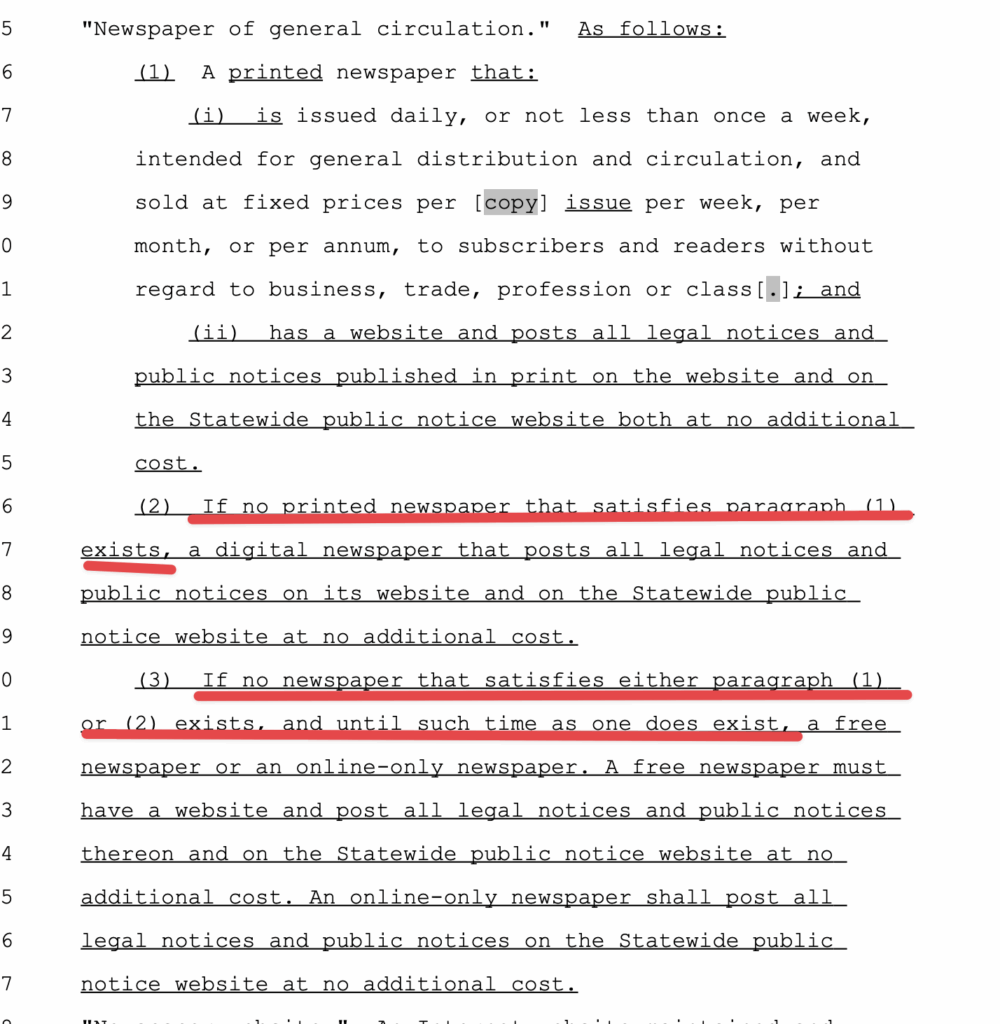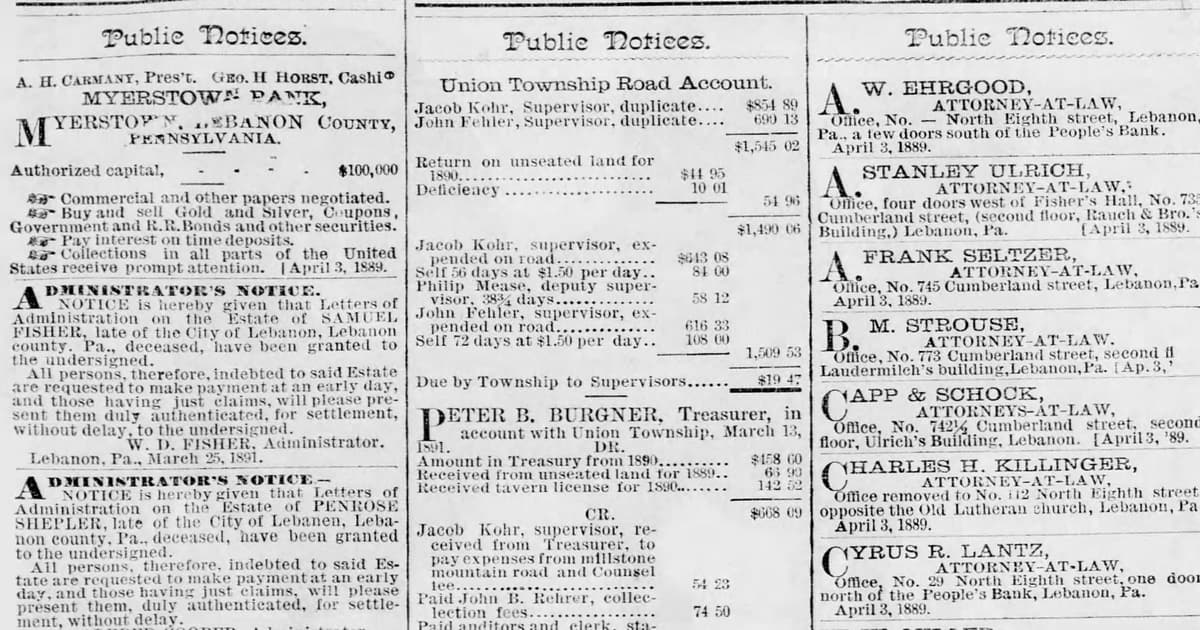In an age before the internet, it made sense that agencies and other parties were required to post public notice of meetings and significant actions in the local print newspaper. This worked for many decades while competition in the print newspaper market remained strong, but today with a greatly diminished printed press, public notices are best known by municipal leaders, lawyers and residents for price gouging and pitiful customer service.
Now, a new bill backed by the Pennsylvania NewsMedia Association (PNA) presents itself as bringing this notice requirement into the digital age. The PNA-backed bill – HB 1291 – was introduced by Rep. Robert Freeman and is co-sponsored by 21 other state representatives. Freeman and his colleagues deserve to be commended for their willingness to support legislation that modernizes the Newspaper Advertising Act. But not everything is what it seems. In its current form, HB 1291 would hurt Pennsylvania taxpayers.
Competition is an American virtue, and HB 1291 is an affront to this democratic value. PNA spins the bill as increasing government transparency, but at best it would have a negligible impact on transparency. Really, the bill exists to allow print newspapers to cease their printed editions, while maintaining lucrative monopolies over public notices in their local markets. The goal is to prevent outlets like StateCollege.com from ever entering the market for public notices, despite our broad reach, commitment to accessible local journalism and lower cost structure.
It’s not just a Centre County issue. Publishers of online-only and free newspapers statewide are appalled at this attempt by legacy print titles to chisel their monopoly over public notices into law for the digital age. The PNA-backed bill would create a new class of newspapers, one purely protectionist in nature. This new category – the “digital newspaper” – ALMOST describes StateCollege.com and other outlets across the commonwealth that pioneered local journalism in the digital form. Under HB 1291, if a printed newspaper was not available in a local market, public notices could instead be placed in a “digital newspaper.”
But this category of “digital newspaper” has a devious carveout. It only applies to publications that currently or formerly had a printed edition. This grandfather clause would serve only to entrench the monopoly held today by these outlets, and prevent price competition by free newspapers and online-only newspapers for this vital public service.
What taxpayer would want local governments forced to choose the more expensive, less valuable option due to a historical quirk that one title used to be in print and another didn’t? Taxpayers deserve better. PNA leadership has said “it is your right to know the plan for how your hard-earned taxpayer dollars might be spent.” It is also your right to make sure those taxpayer dollars are spent efficiently. HB 1291 continues to try to protect the newspaper monopoly when there is no longer a reason for it other than for the newspaper lobbyists.
This measure will inflate the price of public notices by preventing competition and propping up archaic companies – many of which are owned by big out-of-state corporations and hedge funds that suck money from local economies as they cut staff and lay off reporters.
Any revision to the Newspaper Advertising Act must embrace the free market principles at America’s core and allow online-only and free newspapers to compete. If HB 1291 was amended to allow free newspapers and online-only newspapers to compete regardless of whether there was a printed newspaper or a “digital newspaper” descendent, it would unlock a new era of competition for public notices, increase access and drive down prices.

The State House Local Government Committee is expected to consider the bill this month. Legislators, please do not make a costly 50-year mistake by giving these legacy titles an indefinite monopoly over public notices in their local markets simply because they once used ink while outlets like StateCollege.com have always used pixels. We urge the Local Government Committee to consider the above proposed amendment and if necessary hold hearings so that they can explore the issues at stake and guide policy in a direction that would best serve not only Pennsylvania taxpayers, but our democracy.
StateCollege.com readers, if you agree that more competition would be a good thing for public notices, please let your state legislators know your thoughts by emailing them today.
State Representatives:
• Rep. Scott Conklin, 77th District
• Rep. Paul Takac, 82nd District
• Rep. Kerry Benninghoff, 171st District
State Senators
• Sen. Cris Dush, 25th District
• Sen. Wayne Langerholc Jr., 35th District
Dan Myers is the owner and publisher of StateCollege.com. Geoff Rushton is editor of StateCollege.com.



